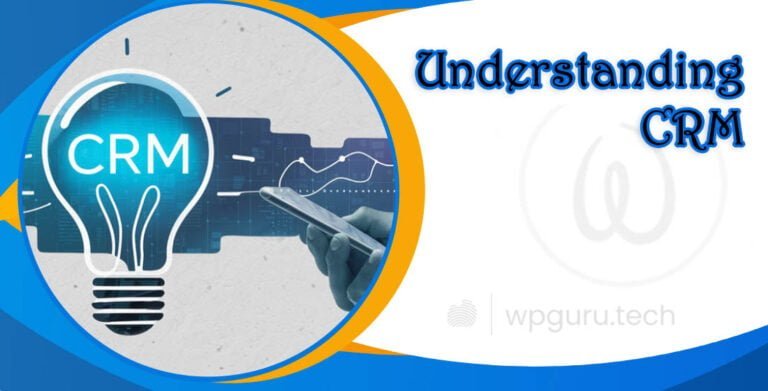Simplify Sharing & AnalytiTop URL Shortenerscs: The Ultimate Guide to 2024’s Best URL Shorteners
URL shorteners do just what they sound like they do – shorten links to pages on your site. Have you ever had to manually type in a URL, only to be exasperated by how long it was? It’s easy enough to type in something short like “example.com/products,” but it’s a lot harder to remember a URL like “fullurlexample.com/blog/how-to-guides/384thk34j_3m%sdhk_uis/.” Trying to remember or type in those long links is a nightmare, and it’s not one that you want to inflict on your target audience.
Table of Contents
When you use links in your marketing, it’s a good idea to keep them on the short side. The simplest way to do that is to just keep your website URLs shorter to start with. Sometimes, you end up with longer URLs whether you want to or not. In those situations, what do you do? You use a URL shortening tool. These handy tools allow you to create a much more concise link from that long, convoluted URL. The shortened link redirects to the original URL when clicked, but is far more memorable and user-friendly to work with.
Simple Questions About URL Shortener
What’s a URL Shortener?
A URL shortener is just a handy tool that takes those long, complicated website links and turns them into nice, short ones. Think of it as a link shrink ray!
Why Would I Need URL Shortener ?
Well, shorter links have some pretty neat advantages. For starters, they don’t take up as much space on a page, which looks cleaner. Plus, social media sites limit how many characters you can use, so condensed links are a must for sharing there.
Remembering some gigantic URL with a million slashes and numbers is also a total pain. But a tiny, shortened link? Way easier to jot down or just commit to memory if you need to pass it along.
At the end of the day, URL shorteners just make dealing with links to your website simple and fuss-free. They cut out all the unnecessary fluff.
How Do URL Shortener Work?
It’s actually really straightforward. You just pop in that massive URL you want to shrink down, and the shortener tool spits out a nice, tiny version for you to use instead. Sometimes it’s a completely new random URL, other times it incorporates your own website for branding.
List of Top 5 URL Shortener
- Bitly
- Short.io
- TinyURL
- Owly
- Sniply
Price Camparision Between Top 5 URL Shortener
- Bitly: Offers QR code generation and starts at $35 per month, with a free plan available.
- Short.io: Free to use, with a premium version costing $19 per month, known for audience segmentation features.
- TinyURL: Provides a free service, with a premium plan costing $9.99 per month, suitable for users not wanting to create an account.
- Owly: Geared towards Hootsuite users, pricing begins at $99 per month.
- Sniply: Specializes in call-to-action (CTA) creation, with plans starting at $9 per month.
Review of Top 5 URL Shortener
1.Bitly
Bitly is one of the most long-standing and well-known URL shortening tools on the market. While its core functionality allows you to generate shorter, more concise links from longer URLs, Bitly offers additional useful features. One such feature is the ability to create QR codes tied to those shortened links, which can be even more convenient to use in certain situations. Another key aspect of Bitly is its tracking and analytics capabilities – it provides data on how many people are utilizing the shortened links and QR codes you generate, allowing you to measure their performance.
In terms of pricing, Bitly does make a free plan available. However, the free version is extremely limited in its features. It essentially serves as a free trial to allow new users to test out the basic link shortening functionality before committing to a paid plan. For businesses wanting to take full advantage of Bitly’s capabilities around QR codes, tracking metrics, and advanced features, upgrading to one of the paid pricing tiers is recommended. While the paid plans involve a subscription cost, they unlock the full breadth of Bitly’s toolset for an enhanced link shortening experience tailored to professional use cases.
2.Short.io
Short.io is a white label URL shortener that allows you to create branded short links using your own custom domain name. This helps increase brand recognition when sharing links.
Some of the main features and capabilities highlighted include:
- Detailed link analytics and click tracking metrics like location, device, browser, etc.
- Access to an API for developers to integrate link shortening into apps
- Support for multiple custom domains in one account
- Team collaboration with role-based access control
- Additional features like A/B testing, UTM parameter handling, password protection
Short.io positions itself as a comprehensive solution designed to simplify link management workflows for businesses through automation and integrations with other tools.
They claim to process 20 million redirects per day across 400,000 customers worldwide.
Pricing starts with a free plan for basic usage, with paid plans starting at $19/month for more advanced capabilities.
The content also mentions Short.io being compared against other popular URL shorteners like Bitly, TinyURL, Rebrandly, Sniply, Owly, and BL.INK as some of the top options in this space.
Overall, Short.io seems to market itself as an enterprise-grade white label shortener with advanced functionality tailored for teams and businesses seeking branded, trackable short links.
3. TinyURL
TinyURL is another one of the top and most popular URL shortening tools available. What makes TinyURL so convenient is that the basic version of the tool is completely free to use, and you don’t even need to create an account or sign up. This allows anyone to quickly generate a shortened URL on the fly without any hassle. While custom branded domains are limited to the paid premium plan, TinyURL does provide some customization even in the free version by letting you personalize the second half of the shortened URL.
For users wanting more advanced features, TinyURL offers a premium paid plan for $9.99 per month. This unlocks additional capabilities like link tracking and analytics to see how your shortened URLs are performing. The premium plan is a reasonable upgrade for businesses or power users who need that extra level of customization, branding, and data tracking that isn’t available in the free version.
Overall, TinyURL has solidified its position as one of the leading URL shorteners by providing a streamlined free tool with no signup barriers, while also offering an affordable premium tier for those needing more robust features. Its free offering makes shortening links easy and accessible to anyone, while still giving paid users additional functionality. This balanced approach of free and paid options is part of what makes TinyURL such a popular URL shortening solution.
4. Owly
Owly is a proprietary URL shortening service designed specifically for users of the popular Hootsuite social media management platform. Its core functionality is tightly integrated right into the Hootsuite dashboard experience, allowing users to conveniently shorten long URLs while scheduling social media posts and content. The shortened Owly links, which use the branded ow.ly domain, provide built-in click analytics and tracking capabilities that can be viewed directly within the Hootsuite interface.
This native integration aims to streamline the process of link shortening and performance monitoring for Hootsuite customers actively sharing content across multiple social channels. By using Owly’s branded short domain when posting, it can also help increase brand recognition alongside the shared links. While Owly can technically be used as a standalone URL shortener outside of Hootsuite’s ecosystem, its feature set and value proposition are truly maximized for existing Hootsuite users. Access to Owly is bundled into Hootsuite’s paid plan pricing, which starts at $49 per month for professional-level accounts.
Overall, Owly exemplifies how URL shortening tools are increasingly being baked into larger marketing/publishing platforms as an out-of-the-box utility. Its seamless Hootsuite integration makes Owly a natural choice for brands already relying on that particular social media management solution.
5. Sniply
Now at the end let’s talk about Sniply – it’s a pretty nifty URL shortening tool, but with a unique twist. Sniply doesn’t just spit out shortened links, it allows you to add a custom call-to-action (CTA) to any URL you want to share. So when someone clicks your Sniply link, they’ll first see your custom CTA message before getting redirected to the original destination.
It’s a clever way to promote your own marketing offers, capture leads, or drive traffic back to your website before sending people off to someone else’s content. The CTA shows up as a little bar at the top of the user’s browser window. You can use it for all kinds of messages like “Download our free ebook,” “Sign up for 25% off,” or anything else to grab attention.
Plans start at just $9 per month, making Sniply an affordable option. More advanced tiers add extras like custom domains, retargeting pixels, and deeper integration with marketing tools. But even the basic plan gives you that unique CTA functionality layered on top of standard URL shortening features. It’s a handy tool for marketers looking to inject some promotion into the links they share!
Common FAQs About Top URL Shorteners
Q: Can I use a custom domain for my shortened URLs?
A: Most paid URL shortener plans allow using a custom branded domain, while free plans may be limited.
Q: How can I track/analyze clicks on my shortened links?
A: Many URL shortening tools provide built-in link metrics like locations, devices, browsers used to access links.
Q: Are URL shorteners free to use?
A: Most offer a free limited plan alongside paid premium upgrades with more features.
Q: Can I customize the “slug” or end part of the short URL?
A: Some tools allow basic slug customization even in free plans to personalize URLs.
Q: How can I share shortened links with branded URLs on social media?
A: Look for integrations with social media management platforms or shared social media scheduling tools.
Summary
So in summary, when it comes to URL shorteners, there is a broad range of free and paid solutions catering to personal, small business and enterprise-level link shortening needs. Advanced features like custom domains, tracking, and social sharing optimization are typically paid premium upgrades.
Originally posted 2024-04-02 09:48:58.








